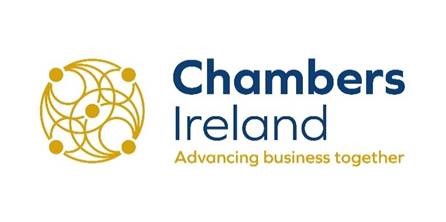Transformation to Inclusive 21st Century Workplace Must be Top of Next Government’s Jobs Strategy

In the face of ongoing economic challenges, on everything from changes to the international taxation environment, Foreign Direct Investment and Brexit, Chambers Ireland emphasises the need to improve the efficiency of our domestic economy and support labour participation. This objective must be central to the enterprise agenda of the incoming Government.
Speaking today, Chambers Ireland President Siobhan Kinsella says,
“The Goal of Decent work and Economic Growth is a major component of Chambers Ireland’s GE2020 manifesto. Developing the skills of those who are in the workforce and making it easier for those who are excluded from the workforce are two of the most important areas that the incoming Government must get right.
This week’s unemployment figures from the CSO suggest that almost every woman who wants to work has a job, but they hide another reality – those who want to be employed but are unable to find a path back to the workforce.
Changes in female employment, together with an ageing population, have brought the issue of reconciliation between work and caring commitments to the fore in Ireland – over 98% of those who are not working because they are engaged in domestic caring duties are women. Parents who work outside of the home are often poorer than they would otherwise be as a result of the elevated cost of childcare, acting as a barrier to female participation in the workplace and male participation in family life. Additionally, people with disabilities are more than twice as likely to be out of the workforce than their European counterparts.
While the GDP based headline figures for national productivity are exceptional, they too hide problems. In our SMEs we have not only lost competitiveness against our international peers – productivity of our medium sized companies in non-trading sectors is often worse than it was ten years ago.
State agencies like Solas, the Local Enterprise Offices, and Educational and Training Boards are making great efforts to provide skills and training courses, but often the administrative hurdles and a lack of awareness about the educational opportunities prevent people from applying.
This is why Chambers Ireland is calling on all parties to put the development of inclusive and accommodating workplaces, and the improvement of productivity and skills at the centre of their Future Jobs policies. Supports for flexible, inclusive workplaces that are family, age and disability friendly will encourage labour activation, improving health, well-being and productivity overall.
With the supply of labour growing tighter there shouldn’t be any hurdles to working for those who want to work, and everyone should be able to hone their skills to their highest levels of achievement. As the nature of work and society changes, the way in which we work must also.”
-ENDS-
